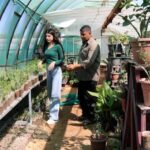Category: Water
When the revolution in Rojava began, the groundwater level was very low due mainly to industrial monoculture agriculture organised by the Syrian regime over the last four decades, as well as a decline in rainfall as a result of the global climate crisis.
In 2015, Turkey started to use water as a weapon against Rojava by holding back the water on the rivers which flow from Turkey to Syria through the dams it has been building over the last twenty years.
Then, in October 2019, Turkish state forces invaded some areas of North-East Syria, including the region of Serekaniye, which supplies water to almost half a million people in the region around Hasakah. The Alouk water station in Serekaniye was targeted on the first day of the invasion. Since then it has been fixed and then put out of service again repeatedly.
Since the start of the invasion of Serekaniye, Turkish military forces and their allies have continued to attack water infrastructure, burned newly planted orchards and dammed the rivers providing most of the fresh water and electricity to Syria. Hundreds of thousands of people are currently without safe reliable drinking water, a situation only exacerbated by the Covid-19 pandemic.
In the articles below, you can find more information about issues surrounding water and the struggles for water autonomy in North and East Syria. There are also articles here with information on issues around water in southeastern Turkey, such as Turkish megaproject the Ilisu Dam, whose waters have now submerged the ancient city of Hasankeyf, drowning thousands of years of largely unexcavated human history and displacing an estimated 100,000 people, while giving Turkey unprecedented control over waters of the wider region.
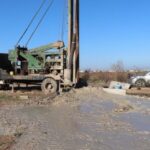
Groundwater levels in Syria’s Hasakah drop sharply amid over-pumping – Expert
Hasakah Governorate in northeastern Syria is facing an escalating water crisis as groundwater levels continue to decline at alarming rates, driven by over-extraction, unregulated well drilling, and weak natural recharge, a local geologist warned on Sunday.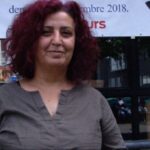
Göksungur: Ecological struggle is inseparable from women and democracy
Fatoş Göksungur said that democracy depends on both ecological balance and women’s freedom, stressing that one cannot exist without the other.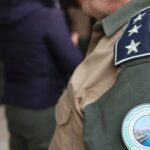
Environmental Protection Forces established in North-East Syria
A new special unit has been established in North-East Syria to protect the environment. The Environmental Protection Forces are tasked with curbing environmental violations, conducting patrols, and, in the future, responding to natural disasters. The Democratic Autonomous Administration of North and East Syria (DAANES) has established a new special unit to protect the environment. The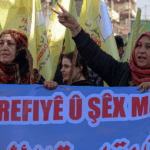
Explainer: Syrian Transitional Government Assault on Aleppo’s Kurdish Neighborhoods
Summary – Sheikh Maqsoud and Ashrafiyeh neighborhoods offered sanctuary to up to 200,000 Kurds, minorities and Arabs, primarily Internally Displaced People (IDPs) – Neighborhoods faced over a decade of deadly assaults and economic embargo from Islamist opposition factions and Assad regime, policies continued by the new Syrian government – New assault by the Syrian Transitional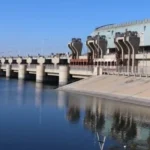
Electricity production drops sharply in North and East Syria, as Turkish shelling
The policies of the Turkish occupation have caused severe damage to electricity production in the North and East Syria region, with electricity output dropping by more than 90 percent as a result of the direct targeting of power generation stations, in addition to the reduction of water inflows into the Euphrates River.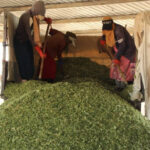
Economic and Agriculture Directorates offered full support to farmers’ projects.
"The Economic and Agriculture Directorates worked to support farmers and activate vital agricultural projects in the Autonomous Administration of North and East Syria, thereby alleviating the challenges faced by women farmers.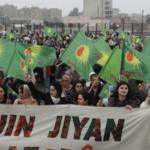
Northeast Syria: A Reality to Reckon With, Not Ignore
The hottest part of the year is not the ideal time to travel to Northeast Syria, a region whose local government is the Democratic Autonomous Administration of North and East Syria (DAANES). But I traveled there this past August, prepared for the soaring temperatures and the unrelenting sun. I spoke with a wide variety of officials and residents about the new realities in Syria. I also viewed with my own eyes the systems that people are living under, and the drumbeat of everyday life. After fifteen years of war, hostilities, and resource shortages, following decades of neglect by the regime of Bashar al-Assad, you would think that the region would be totally devastated.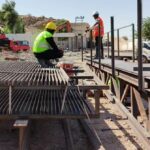
Major project launched to end Deir ez-Zor’s longstanding water crisis
DEIR EZ-ZOR, Syria (North Press) – The eastern Syrian city of Deir ez-Zor is witnessing a major step toward ending its years-long water crisis with the launch of a large-scale project to rehabilitate the Euphrates Water Station, one of the region’s most vital infrastructure facilities. The initiative is being implemented in cooperation with UNICEF. The project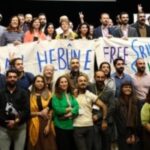
Joint commissions to be established for the right to water
At the 2nd Mesopotamia Water Forum held in Amed, participants developed proposals addressing the obstruction of access to water, ecological destruction, and the protection of water resources.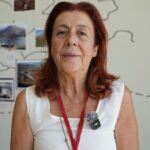
Water crisis deepens: It has become a strategy of war
Ecologist Beyaz Üstün said that the global climate crisis is in fact a water crisis and warned that if it is not stopped it will lead to greater disasters.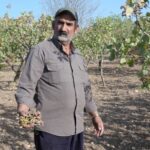
Farmer Evin: The dam only brought poverty
Farmer Mehmet Sıddık Evin said that the Ilısu Dam, along with other dams built across the province, has destroyed the productivity of pistachio orchards: “These dams brought us nothing but poverty,” he said.